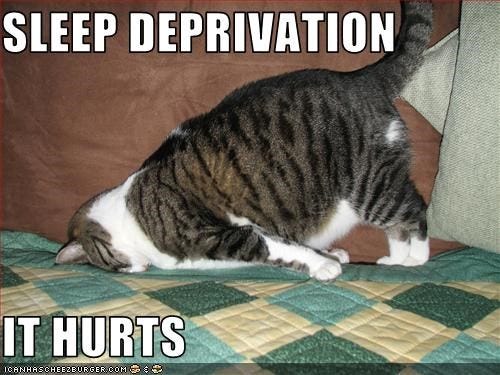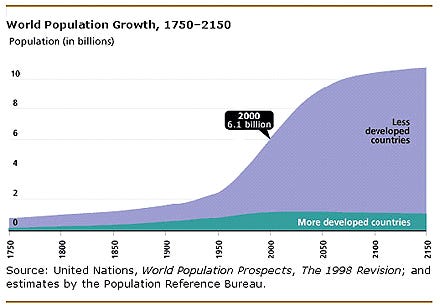So What, Who Cares (vol 2, issue 24) Why long work weeks aren't productive work weeks
Hello! The long weekend has thrown my flow -- Karl Poppa would be so disappointed (vol 2, issue 2). As for the long weekend's very reason -- Presidents' Day -- you can see how it was observed in my household. How was your weekend? Do you have any special Presidents' Day traditions of your own? Share them via Twitter or email.
*

The adage "Work smarter, not harder" is grounded in actual data. According to a study published by Stanford University last year, worker output drops after a 50-hour work-week, and plunges into time-wasting after 55 hours. In other words, if you're working a 70-hour week, your productivity for hours 56-70 is pretty much nil.
One of the things that makes the overwork thing even worse: According to a University of Pennsylvania study, people who sleep six hours or fewer every night work, on average, 1.5 hours more per day. The study calls overwork the great "sleep thief." And, making this feedback loop particularly toxic, sleep deprivation dramatically reduces our reaction speed, short-term and long-term memory, ability to focus, decision-making capacity, math processing, cognitive speed, and spatial orientation -- all of which are necessary to work well within the usual 40-50 hour workweek.
So what? The news here is there are actual, cognitive limits to how much you can do in a given day. And by honoring those limits and clawing back some of your time for non-work, Wharton researchers contend, you'll actually be in better shape to do better work.

Who cares? People who are trapped in a work culture where people make a huge showy deal about how much they work. The next time your boss gives you the fisheye for putting in a reasonable workweek, you can drop some science on him or her.
There is also an emerging economic argument: Work fewer hours and on the micro level, workers will have more time with their families. On the macro level, that frees up hours so more people can work -- and shifts our economy away from the endless earn-more-to-buy-more treadmill. Some suggest Europe is already headed in this direction (vol 2, issue 11).
*
Civil rights lead to personal freedoms and that leads to economic mobility. The Economist advanced this notion six years ago, and the Pacific Standard's Diana Liverman reiterated it in a research round-up last week, name-checking Amartya Sen (a Nobel prize-winning economist who contends that civil and political rights are what enable social and economic welfare) and concluding:
Women will choose to have fewer children—to reduce fertility—when they have higher status; more options; living standards that include higher levels of education, literacy, employment, health care, and savings; a higher average age of marriage; and safe contraceptive choices.
So what? There is a definite link between family planning and socioeconomic position.
A World Health Organization team did an analysis of health surveys across 35 low- and middle-income countries, and found "women who did not use birth control were 14.3 times more likely to become pregnant compared with those who did use birth control. That amounts to 16.7 million unwanted pregnancies annually." The study's authors note that fifteen million of the undesired pregnancies could have been prevented with proper use of modern contraceptives, and that women with less education were 8.6 times less likely to use contraception.
Who cares? Likely, women with little to no contraceptive access. They're the ones carrying those 16.7 million pregnancies.
But this is a big story for anyone who works to remediate poverty -- in addition to initiatives that offer women education and a way to take charge of their fertility, there needs to be a wider push for the civil and political rights that make it remotely plausible for raising a population's overall literacy rates and health.

Finally, it's also a big story for environmentalists. Even with population rates falling across several countries, we're still looking at an estimated 9 billion people on the planet before 2050, and some pundits are already shuddering at the environmental impact those people will have when they demand the same standard of living countries like the U.S. enjoy. One solution that is coming up more frequently: give people access to birth control. According to a 2010 study published in the Proceedings of the National Academy of Sciences:
"Lower population growth could provide benefits equivalent to between 16 and 29 percent of the emissions reduction needed to avoid a 2 degrees Celsius warming by 2050, the warning line set by international scientists."
Given the fragility of the world's infrastructures and businesses in the face of current weather trends (vol 1, issue 6; vol 1, issue 9; vol 1, issue 12; vol 1, issue 21; vol 1, issue 55; vol 1, issue 63; vol 2, issue 7; vol 2, issue 8) -- and how costly it's going to be to roll with the rise in extreme weather -- expect to see profit-minded people gradually insert birth control into their policy positions.
*
Today's pop culture follow-up: In the prior issue (vol 2, issue 23), I applied Lorne Michaels' very criteria to the SNL 40 invitation list and compiled a list of presumed snub-ees. A quick look at the red carpet photos will show that some of those folks squeaked in anyway: Martin Short, Billy Crystal, Siobhan Fallon Hogan and Sarah Silverman
The lesson here, obviously, is that Lorne Michaels makes the rules and Lorne Michaels breaks the rules. Do not presume to hold Lorne Michaels to the rules.
*

Today's pop culture moment: It's no secret I love Key & Peele (vol 1, issue 35), and this week, the New Yorker has a long and enjoyable profile on Keegan-Michael Key, Jordan Peele and the process of making the show. This may also be the first-ever sketch comedy profile where a William Gibson quote is invoked as the metaphor for race relations.
What is notable about this piece is how closely it tracks with an earlier New Yorker appraisal of the show: both talk about how the very reason Key & Peele works is because both Key and Peele are so willing to erase themselves in the name of art.
And now, enjoy the Key & Peele take on 1988 Crystal Light Aerobics Championship.
*
Did you miss an issue of So What, Who Cares? The archive is here. Are there typos? I apologize in advance.
As always, I welcome your feedback and suggestions -- you can reach me through Twitter or email. Please do not hesitate to let me know what you think about So What, Who Cares, or suggest links/topics/pop culture that rings your bell.
If you really like it, tell a friend to subscribe.

